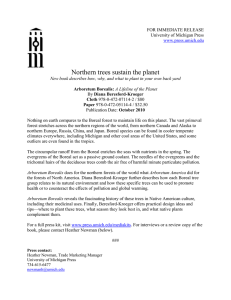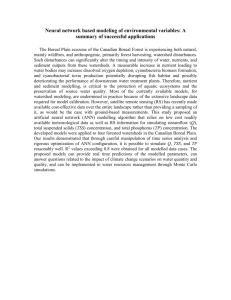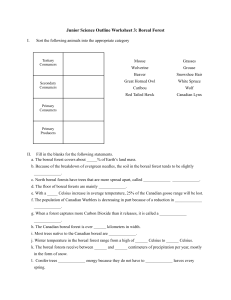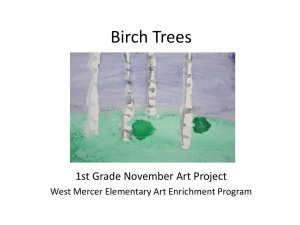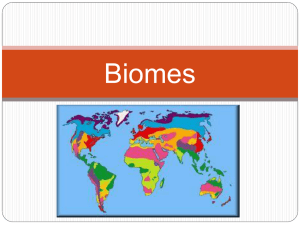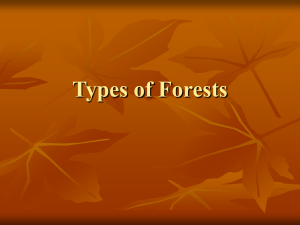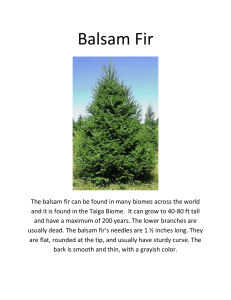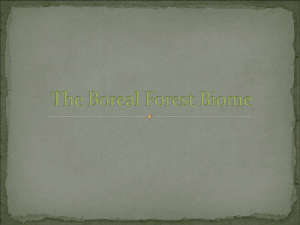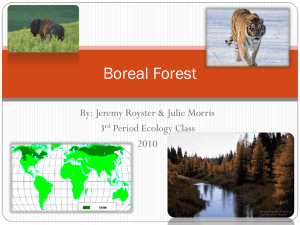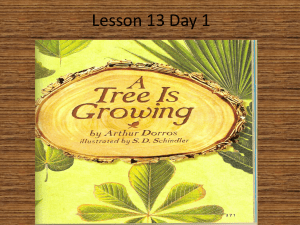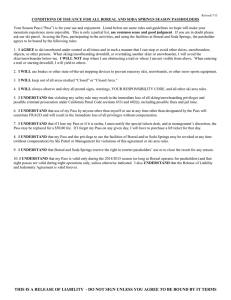Cold climates: Focus on Boreal lands
advertisement
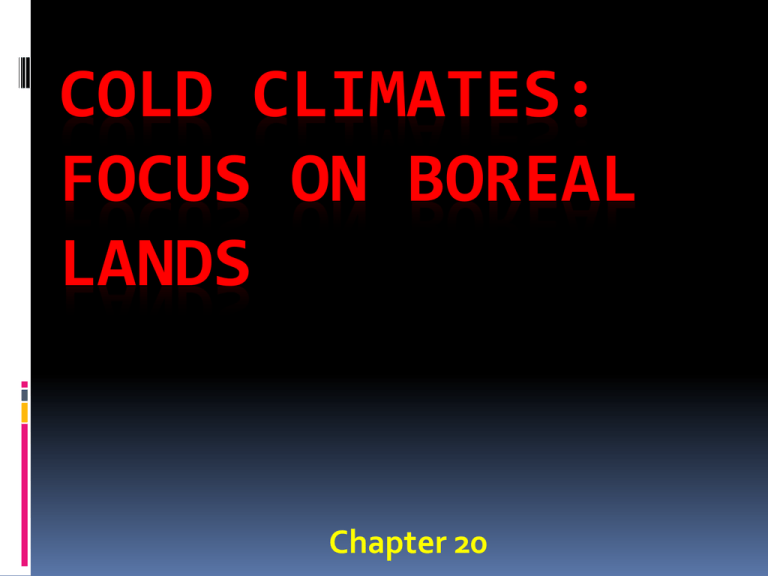
COLD CLIMATES: FOCUS ON BOREAL LANDS Chapter 20 Two types of cold climate are: • Tundra climate – coldest (furthest from equator) • Boreal climate ‘Boreal’ means ‘northern’ Tundra climate is in Arctic Circle Boreal climate is between 50-66.5 N. January: very cold, temperatures down -29C in places Short, warm summers up to 16C Less than 400mm of rain per year There are many coniferous forests of: • Spruce trees • Pine trees • Fir trees • Most conifers are evergreen • Slender shape offers little resistance to the wind which prevents damages from storms • Thick bark keeps moisture in and stops wind and cold from getting into the trees. • Thin needles don’t wither in the wind. • The branches slope towards the ground to allow the snow to fall off. • Shallow roots develop in the thin layers of soil. • Sustainable logging is extremely important. • Rule: Cut one, plant two trees (as said by Swedish Government) 1/3 of the worlds trees Main details from this chapter include: Russia, USA, Canada, Finland, Norway and Sweden are the Boreal lands of the world. They are located in the northern hemisphere between 50-=66.5 (north of the equator). There are two types: Tundra Boreal The climate type : Cool temperate Climate Cold winters: -29C (high latitudes) Summers: 16C in July Precipitation: 400mm per year Natural vegetation: coniferous trees (spruce, fir, pine). Vegetation adapts by: Shape, bark, needles, shallow roots and sloping branches ‘Taiga’ = forests of the Boreal area 1/3 of the worlds trees).
